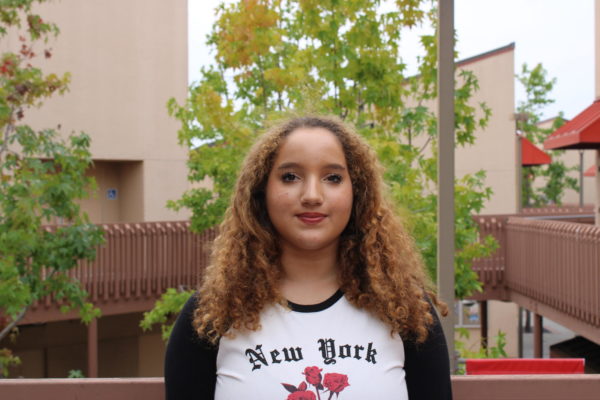Celebrity culture has created such a whirlwind of drama from the glamorization of extravagant lifestyles and the consumption of ridiculously expensive products, to a spike in toxicity and jealousy engraved in every corner of social media. As a result of this hardwired madness in society today, people are focusing less on the events going on around them and more on who was named the sexiest man of the year.
Of course, idolizing celebrities has been typical for a long time. As children, superheroes and Mickey Mouse were the idols of many. But now as you’ve grown, it is the social media influencers, models, actors and artists who catch your attention.
University of Derby social psychologist Ruth Sims says Generation Z is the most obsessed with celebrities, likely as a result of a marked increase in access to media as compared to generations in the past. Every detail, even those once deemed more on the private side, is shared online for the whole world to see.
“It’s so easy to go on social media and just ignore what’s happening,” junior Sophia Newton said.
The celebrity feed is addicting. The more you consume, the more you want to know. Furthermore, celebrities have become a symbol teenagers aspire to be, despite their numerous cringeworthy moments. Sims says that the reason adolescents are especially vulnerable to this infatuation with celebrity culture is also a result of the emotional development happening during teenage years and the formation of one’s personal identity and interests.
With the development of identity, comes the perception of outside appearance. Youth charity Young Men’s Christian Association (YMCA) had a survey for people ages 11 to 16 and found that 62% of 15 to 16 year olds felt that social media increased their expectations of their body image.
The image of celebrities has become a standard of beauty that is idealized and incredibly unrealistic. With the transformation of technology, it is so easy to edit photos or add filters to make celebrities seem so-called “perfect.”
These standards are excessive, yet celebrities claim it is a result of certain products they use to achieve their desired appearance. In reality, celebrities who showcase products on their social media accounts or on television are just walking advertisements.
“I feel like with makeup these days people are buying what they want to buy and it’s just whatever is popular,” junior Megan Cope said.
At this point, it is hard to determine what is actually a decent commodity and what is just a cheap product because of celebrity endorsements.
“An influencer or celebrity [gets a] brand deal and then they put that out and people look at that and buy more,” junior Elizabeth Sein said.
It’s all about what the most famous person is doing and not about what is best for your body, your health or your mind. It is just so easy now to fall into the trap of following exactly what your idol is doing.
Though there are negatives, celebrity culture is not all bad.
“I think since [celebrities] have a big platform [and] what they say impacts so many people,” Newton said.
With stardom, comes a large audience. Celebrities have the opportunity to inspire change because there are so many people listening.
“I feel like currently Selena Gomez is really bringing people up,” Cope said. “She’s been going through all of these body changes recently and she’s just been sharing her story very publicly and just showing everybody how it is perfectly ok.”
In the same way that celebrities can promote negative body image, they can also encourage others to feel confident in themselves by being open about their own insecurities and showing people that everyone is beautiful.
Due to the increased consumption of celebrity media, Newton also believes that inclusivity in media has increased throughout the years as well. With more attention to them, celebrities can help increase belonging when they share stories such as coming out experiences, sexual harassment or support for the Black Lives Matter movement.
To silence stories like these and call them a distraction would not be fair. It is the celebrities who understand their influence and use it to try to diversify and create a more comfortable environment that should truly be admired.
It is important to note, however, that there is media beyond celebrity news relating to a variety of important issues. Relying solely on a handful of popular people to know about events happening outside the hype is not a good idea. People who are knowledgeable on a much broader scale can help move the generation forward beyond the excitement of what is currently the trend.
According to a study in the International Journal of Cultural Studies, people who spend the most time-consuming material on celebrities are most likely to be less engaged in politics and are the least likely to vote. Although there are cases where celebrities help promote certain political or social movements, ultimately their glamorous lives draw the most attention.
But it is not necessary to base your opinions on a famous figure. In fact, you should not be blindly following celebrities and making decisions solely because they said so. You should be making decisions based on your best interests and not as a result of pressure to conform or follow others.
“I guess I could just turn on the news, but it’s easier to go on your phone and scroll,” Sein said.
It can be hard to stop when social media keeps distracting you from the rest of the world. Ultimately, what the media posts or whatever reels pop up on your feed is out of your control. However, what you can control is how much media you choose to consume. Being comprehensive and recognizing what is happening is the first step.
As the next generation gets ready to take on the challenges of our day, it is your job to take responsibility for the kinds of media you choose to read or watch. Despite your political involvement, activism or opinions on current events, it is always important to stay informed about what is happening around you.










